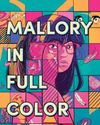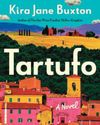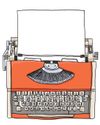
I am an unabashed, die-hard fan of the now-concluded FX TV show "Atlanta." For four seasons, I tuned in to watch the adventures of Alfred (aka "Paper Boi"), Earn, and Darius, mainly because I love strange stories, particularly shows that are slightly off-kilter, like "Twin Peaks." In fact, Donald Glover, the creator of "Atlanta," once described his show as "Twin Peaks' with rappers." I have, at times, found myself obsessing over what I perceived to be surrealism on the show, only to question if it was more magical realism than surrealism, then wondering if there was a real difference that extended beyond academic semantics-at least on a practical level. Of course, this level of analysis could very well have been its own "Atlanta" episode, if the show was still running.
In the simplest of explanations, magical realism is when the unusual or fantastical happens in a realistic universe. For example, imagine a normal neighborhood where children are playing, and one of the kids flies into the sky, while the others look on as if nothing unusual has happened. With surrealism, though, which has its roots in the art movement of the same name, stories tend to circumnavigate the usual human consciousness, instead drawing from the unconscious or the subconscious, and create a fantastical setting in which anything can happen. Surrealism is often referred to as "dreamlike" in its execution. Consider for a moment Salvador Dalí's painting The Persistence of Memory, which features a variety of melting clocks hanging over various objects, and you'll understand what I mean.
This story is from the {{IssueName}} edition of {{MagazineName}}.
Start your 7-day Magzter GOLD free trial to access thousands of curated premium stories, and 9,000+ magazines and newspapers.
Already a subscriber ? Sign In
This story is from the {{IssueName}} edition of {{MagazineName}}.
Start your 7-day Magzter GOLD free trial to access thousands of curated premium stories, and 9,000+ magazines and newspapers.
Already a subscriber? Sign In

What Is Your Story Question?
Revision and editing advice to take your first draft to the next level.

Writing for the People We Hope to Become
Elisa Stone Leahy's new middle-grade novel, Mallory in Full Color, tackles the in-between moments of adolescence, when who we are and who we want to become collide.

Creating Community
Whether hot off the presses or on the shelves for years, a good book is worth talking about.

Pat Barker
The Booker Prize-winning author of Regeneration shares the role characters play in developing novel ideas and explains what appeals to her about reimagining mythology.

How to Write in Different Genres
Emiko Jean and Yulin Kuang share tips and strategies for how they successfully write in different genres and mediums.

The Shortest Distance Between Two Points
Ten tips for writing a novel with 100-word stories.

Mayfly Marketing
How to sell your novel in a short-attention-span world.

"You'll be a great essay".
How to write six types of personal essays by finding the funny in your life.

The Idea Factory
Tired of staring at an empty screen? Unlock your inner fiction generator with these surprising inspiration techniques.

Seinfeld Was Right: That's a Story
Use mundane moments from everyday life to create stories that pack a punch.